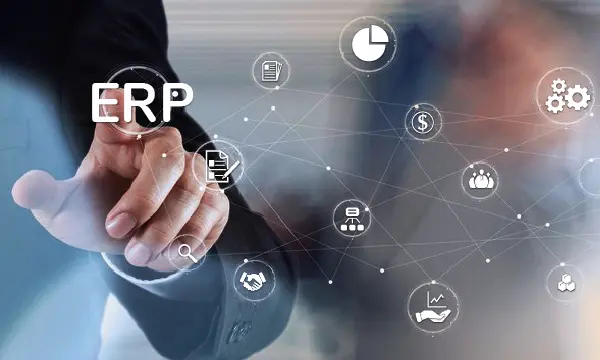Enterprise resource planning (ERP) software is a system designed to help organizations manage their resources and operations in an efficient manner. It allows businesses to integrate all of their core processes, such as finance, accounting, manufacturing, sales, human resources and more into one unified system. By doing this, it enables businesses to streamline their operations and improve visibility into their organization's performance. ERP software also helps organizations reduce costs by automating tedious manual tasks and eliminating the need for multiple systems. This helps businesses save time and money while increasing efficiency across the organization.
Enterprise resource planning (ERP) is a business management system that helps organizations automate and manage their operations in a centralized manner. ERP solutions are used to improve organizational efficiency, increase customer satisfaction, reduce costs, and streamline processes. ERP systems offer numerous benefits to businesses of all sizes, such as improved visibility into data and operations, better collaboration between departments, better customer service levels, enhanced scalability, increased process efficiency and speed of execution. Additionally, ERP systems can also provide businesses with greater insights into their customers' needs and preferences. This allows them to better tailor their services to meet customer expectations. By utilizing an ERP system businesses can achieve significant cost savings through reduced manual labor costs and streamlined processes.
PiLog iSPIR Manager was built primarily to acquire, build, structure, clean and configure data, gathered during a Capital Expansion Project and then deliver this data in a format that can be easily uploaded into any operational ERP Solution for further processing of transactional data
From an Operational Data perspective, the opportunity of acquiring all the necessary data for a fully integrated ERP solution is at its highest during the project, as all the Vendors are quite possibly on-site and the contract close-out procedures can contain Master Data delivery checks and balances that will ensure the successful delivery of all relevant Procurement, Materials and Maintenance Master Data
This module allows the user to register all PO's placed during the acquisition phase of a capital expansion together with the list of items procured. These line items or the material take-on are then transferred to a Vendor Catalogue where they are classified and catalogued

Enterprise Resource Planning (ERP) is a system used by companies to manage their core business processes and activities. It helps them streamline their operations, improve productivity, and increase efficiency. However, there are certain challenges associated with ERP that can make it difficult to get the most out of the system. These challenges include software integration problems, cost constraints, data security risks, lack of flexibility and scalability of the system, and difficulty in customizing it according to company requirements. To overcome these challenges and maximize the benefits of ERP systems, businesses need to ensure that they have adequate resources as well as setting up proper systems for data security. Additionally, they should evaluate different solutions available in the market before investing in one so that they can select a system that best meets their needs.
Enterprise Resource Planning (ERP) systems can help companies become more efficient and organized by having access to centralized data and leveraging automation. There are various types of ERP systems, each suitable for different businesses depending on their size and industry.
For instance, It is ideal for small businesses who need an affordable solution that can scale as they grow.
On the other hand, large organizations might opt for an on-premise system that provides a higher level of customization.
No matter the type of ERP system chosen, it's important to ensure that it meets all your business needs.
